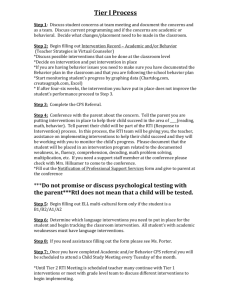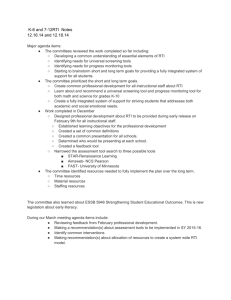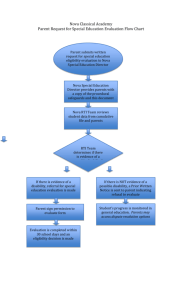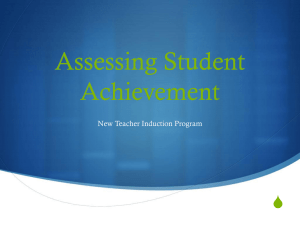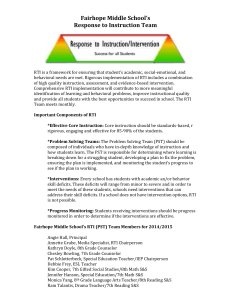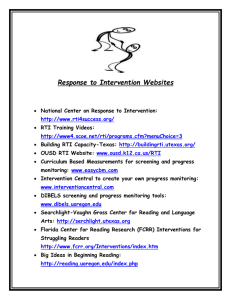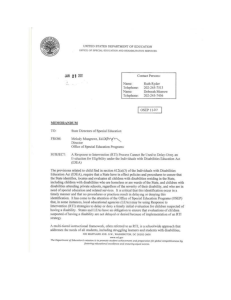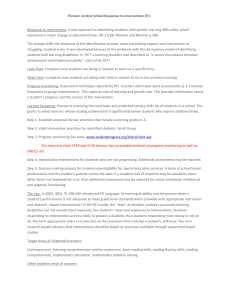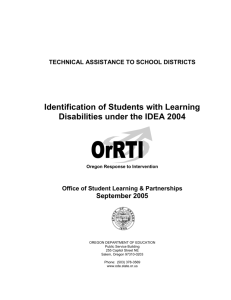Request to Evaluate Form - La Crescent Montessori Academy
advertisement
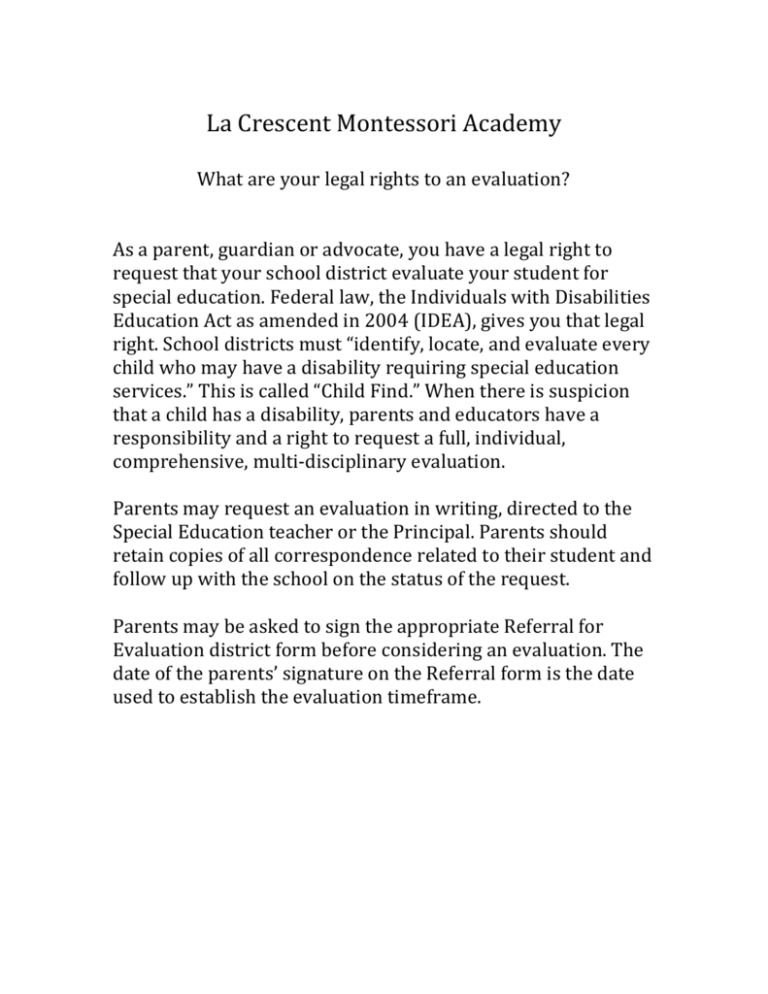
La Crescent Montessori Academy What are your legal rights to an evaluation? As a parent, guardian or advocate, you have a legal right to request that your school district evaluate your student for special education. Federal law, the Individuals with Disabilities Education Act as amended in 2004 (IDEA), gives you that legal right. School districts must “identify, locate, and evaluate every child who may have a disability requiring special education services.” This is called “Child Find.” When there is suspicion that a child has a disability, parents and educators have a responsibility and a right to request a full, individual, comprehensive, multi-disciplinary evaluation. Parents may request an evaluation in writing, directed to the Special Education teacher or the Principal. Parents should retain copies of all correspondence related to their student and follow up with the school on the status of the request. Parents may be asked to sign the appropriate Referral for Evaluation district form before considering an evaluation. The date of the parents’ signature on the Referral form is the date used to establish the evaluation timeframe. Here is a sample letter requesting an evaluation: Date: Dear Lori Walz, My student _____________________________ is having a difficult time learning with (area of concern). I am requesting that my child be evaluated for special education services. ________________________(student name) will be completed and a meeting date will be set within the timeline as required by federal law. My signature on this letter gives my consent for my child’s evaluation to begin. I look forward to hearing from you. I am available by phone at this number_____________________. Sincerely, Parent signature____________________________ What is Response to Intervention (RTI) and how is it used in determining whether a child has a specific learning disability? Response to Intervention, often called RTI, is a general education pre-referral process to help children who are having difficulty learning and achieving at grade level. RTI is designed to give these students additional academic support before the school district determines if they should be referred. La Crescent Montessori Academy has a Child Study Team, which discusses these issues. Do all school districts have the same policies for implementing RTI and conducting special education evaluations? Each school district in Minnesota has its own procedure and most require a pre-referral process. La Crescent Montessori Academy supports the use of RTI for students suspected of having any disability. A referral to the Child Find Team will be made to discuss potential interventions that will be implemented prior to initiation of a special education referral. Is there a limit on how long a child might receive interventions under an RTI process? There are no specific timelines regarding how long students should receive these interventions. The first tier interventions may be used with the entire class (universal interventions), while more intensive intervention are targeted toward students struggling to learn. The number of weeks to complete the interventions may vary widely. Is there a right to an evaluation if the child is receiving RTI interventions? Yes, Regardless of where the student is in an RTI process, the IDEA regulations give parents the right to request an evaluation for special education services at any time. The law also says that information from an RTI process must be collected before the end of the timeframe set in place by the date of the parent’s consent for a special education evaluation. Is there a time frame for completion of the evaluation? Minnesota has established a timeframe of 30 school days to complete the evaluation. The timeframe begins from the time the school district receives the parents’ written request for the evaluation. Following the evaluation, the parent receives an Evaluation Report which includes a summary of the assessment results, documentation of whether the pupil meets a particular category of disability, the student’s present levels of performance and educational needs that derive from the disability, and whether accommodations or modifications and special education and related services are needed. If your student meets a particular category of disability and is eligible for special education and related services, you weill be invited to participate in a meeting with other key staff members to develop an Individual Education Program (IEP) plan for your student.
